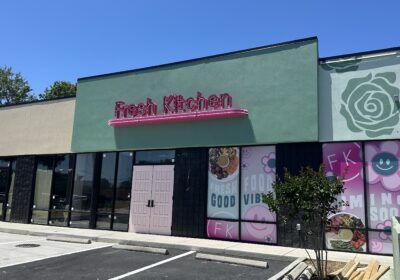A case of voter apathy:
Despite having an unprecedented number of voters in the 2011 Student Government (SG) election, USF saw an underwhelming turnout at its polling stations during the mayoral election March 1. In fact, it was the lowest turnout in the Tampa area.
Only seven of the 1,422 registered voters in precincts 352 and 353 cast ballots at the Marshall Student Center (MSC) polling station, according to the St. Petersburg Times, equating to a less than .5 percent voter turnout. Yet, 6,001 students voted in the SG presidential election.
With voting between candidates Rose Ferlita and Bob Buckhorn opening today for the mayoral run-off election, residents will again have to go to the MSC – the sole polling station for the two precincts – to cast their votes.
Voter turnout for the primary election was low throughout the Tampa area at 22 percent overall. J. Edwin Benton, a professor of political science at USF, said the low student turnout is not unique to the MSC polls.
“Students are not nearly as politically active, engaged and informed as people much older,” he said. “That has always been the case and will always be the case whether it’s USF or somewhere else.”
Benton said the desire to be a politically engaged student has greatly declined since he was enrolled in college, during the late-’60s and early-’70s.
“Right now is a time when government is irrelevant to young people’s lives,” he said. “To be relevant, (young people) have to see something that makes a connection to where they live today. They don’t see the relevance of the city government to their lives. Sure they get water, or fire and police protection from the city. The government exists, but it doesn’t touch their lives long enough to make them care enough to show up to vote.”
Franz Villate, a graduate student majoring in secondary social sciences, said he believes the low turnout was due in part to the University’s failure to provide adequate opportunities for students to become politically informed.
“We need to start talking about the issues that affect us instead of talking about what party is going next week or trivial matters,” he said. “Part of that too, I feel, is (due to the fact) that (SG) is really depoliticized. They do not debate controversial issues in the real world. They just debate school issues. That’s why I feel a lot of people are disconnected and apathetic.”
More opportunities for public discourse and debate with University officials and (SG) leaders would encourage students to voice their opinions and become politically engaged, he said.
“Twenty (to) 30 years ago, student governments used to write resolutions in favor or against certain legislation, like during the Vietnam War,” he said. “Today, there’s not government in student government. We should be having debates on health care, debates on immigration, debates on the debt. We’re going to graduate and we’re going to go to this world – the real world – that we’re not prepared for at all. We don’t have a public space to debate those issues.”
Yet, USF student body President Cesar Hernandez said that SG has done everything it could to encourage political engagement within the student body. In a year that saw senatorial, gubernatorial and mayoral debates and forums for students and the public on campus, Hernandez said he finds the lack of civil participation unacceptable.
“I don’t know what else we can do other than wake (students) up, make them breakfast and carry them to the polling sites,” he said. “You can take a person to a feast, but you can’t make them eat.”
Dwayne Jones, a freshman majoring in public health and a registered voter in Hillsborough County didn’t vote in the March 1 election because he said he “didn’t feel like” going out of his way to search for a polling station. Jones said he is just one of many students who were confused about the polling location, which was advertised by signs outside of the MSC.
“USF does a good job of making students politically aware,” he said Monday. “(But) seeing as (this is the first I’ve heard of the runoff election), I’m probably not going to vote.”
For the students who find the polling site – located in MSC Room 4103 from 7 a.m. to 7 p.m. today for the run-off election – without incentive, Hernandez said USF owes them its appreciation.
“For the seven students (who) did vote, congratulations to them, because those are the people (who are) going to be the leaders of this nation,” he said.
Benton said that until “rich Uncle Sam in Washington” makes his presence felt in the lives of students in their 20s, he predicts that political apathy will continue to plague college campuses.
Three of the five mayoral candidates that can in the primary election March 1 attended a forum held at USF where panelists and students were able to ask them direct questions.
The primary election results left Ferlita 984 votes ahead of Buckhorn. Run-off results will be decided tonight.






